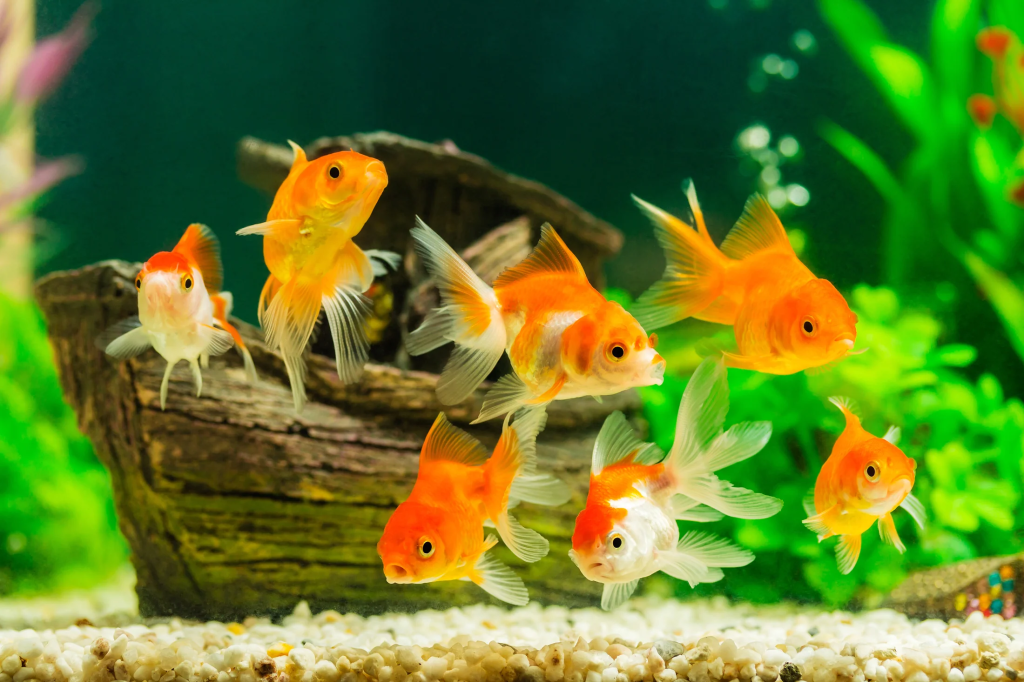The study of freshwater fish is an artistic venture because they occupy rivers, lakes, ponds, and streams that cover less than 1% of the Earth’s surface and support over 15,000 known fish species. In contrast to saltwater fish, fish have adapted to living in environments of low salinity. This makes for an incredibly diverse group of fish, allowing them to show a plethora of physical and behavioural attributes that set one freshwater species apart from another. From the tiny neon tetra, sparkling like a jewel in aquariums, to the Mekong giant catfish weighing in at hundreds of pounds, fish are proof of nature’s creativity.
Types Of Freshwater Fish
These fish come in a variety of forms, from colourful ornamental fish for aquariums to giant forms in nature, that preoccupy various river systems. For better consideration, it is good to categorise them.
Popular Freshwater Aquarium Fish
For aquarium lovers, freshwater fish are the first choice from almost all perspectives and the most accommodating of beginner-level fish. Guppies, bettas, angelfish, tetras, mollies, and goldfish are adored for their colours, robustness, and behaviours. The caretaking requirements vary among these species; many bettas enjoy warm, calm waters and a solitary life, while tetras prefer travelling in shoals, giving a stunning spectacle when grouped.
Wild Freshwater Species from the World
Outside the aquarium, wild fish are by far the most diverse and ecologically significant. Catfish, pike, trout, perch, and carp are widely distributed and valuable to the ecosystem as well as the fishing industry. Some, like the Amazonian arapaima, can grow to over 10 feet long, whereas others, like the tiny minnow, are less than one inch.
Tropical Freshwater Fish
These fish are kept in warm waters of regions such as South America, Africa, and Southeast Asia. They include discus fish, angelfish, and neon tetras. The bright colours and unique patterns of these fish make them a favourite in the aquarium trade.
Coldwater Freshwater Fish
Species such as trout, salmon, and sturgeon find their climate in colder water. These fish are ecologically important and hold an economic mantle due to their recreational fishery and aquaculture.
The diversity of fish means there is continual new information to acquire, whether concerning their ecological role or for the awe of watching these stunning fish in an aquarium.
Habitat of Freshwater Fish
Freshwater habitats are as varied as the fish living in them. In contrast with the vast uniformity of the ocean, freshwater ecosystems vary greatly from region to region, thus providing unique habitats for several fish species.
Lakes and Ponds
Lakes and ponds provide relatively stable environments with different zones of depth. Bass, perch, and bluegill are some types of fish residing in these areas. Shallow waters that are close to shore typically host small fishes and fry, while larger predatory fishes inhabit deeper areas. Seasonal changes of temperature and oxygen levels also influence the fish’s inhabiting behaviour in the ecosystems.
Rivers and Streams
Fast-moving rivers and streams are dynamic systems that require all sorts of adaptations. The bodies of trout and salmon have a streamlined shape, enabling them to swim up against contrasting currents. There, they coped with substantial variation in flow, oxygen contents, and food availability.
Wetlands And Marshes
Wetlands become an important nursery for many kinds of fish. There, shallow, crowded with plants, they secure freshwater fish shelter, food, and breeding grounds. They are excellent environments for catfish and gar, while many migratory fish act as rest stops in wetlands.
Freshwater habitats are continually under pressure from pollution, damming, and climate change. Conservation of freshwater ecosystems requires an understanding of their dynamics and significance to the diverse species that depend on them.
The Freshwater Fish Fun Facts
Unforeseeable Fish Fun Facts; some of them downright freaky.
The record-breaking freshwater fish
The Mekong giant catfish is known to be one of the largest fish ever caught, at a weight of well over 600 pounds.
It has a unique lung-like organ that allows it to grow longer than a fully grown adult human and survive for hours outside water.
It boasts an alligator gar, as North America calls it, which resembles a prehistoric creature with its sharp teeth and armour-like scales that have not changed in millions of years.
Strange and Uncommon Freshwater Species
Electric eels deliver mighty electric shocks, sometimes bailing out prey and scaring off predators.
Mudskippers can walk on land with their pectoral fins and can climb mangrove roots.
The African lungfish will follow the dry season by burrowing into mud and breathing air until the waters return.
These remind us of how freshwater is diverse and still endlessly interesting, according to nature’s endless capacity for innovation in every environment.
Conclusion
Ecosystem engineers, cultural icons, and food sources for millions of people, freshwater fishes are more than just organisms in rivers and lakes. From the tiniest neon tetra to the biggest arapaima, every species has a tale of adaptation, survival, and beauty.
Freshwater fish remain fascinating subjects whether in aquariums, during weekend fishing trips, or in the wild. Yet with great threats from human activities and climate change, it is important to conserve these fish for everyone.
FAQs
1. Is the fish in the freshwater tank popular with beginning aquarists?
Guppies, bettas and neon tetras are good beginner fish for sale because they are hardy and require very little care.
2. What is the average lifespan of fish?
Life span varies under a controlled environment. Examples include small species like tetras, which live between three and five years. Koi and goldfish can live for decades under ideal conditions.
3. Can freshwater fish survive in saltwater?
Almost none can, but certain species, like some mollies and cichlids, have brackish environments.
4. Which freshwater fish is endangered?
The Mekong giant catfish, Chinese paddlefish, and several African cichlids are critically endangered species.
5. What is the biggest fish in the world?
Among the largest are the beluga sturgeon and the Mekong giant catfish, which reach weights of over 600 pounds.


